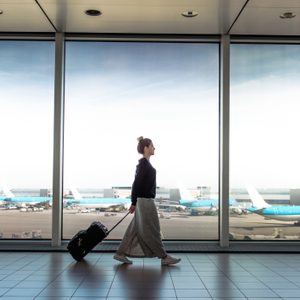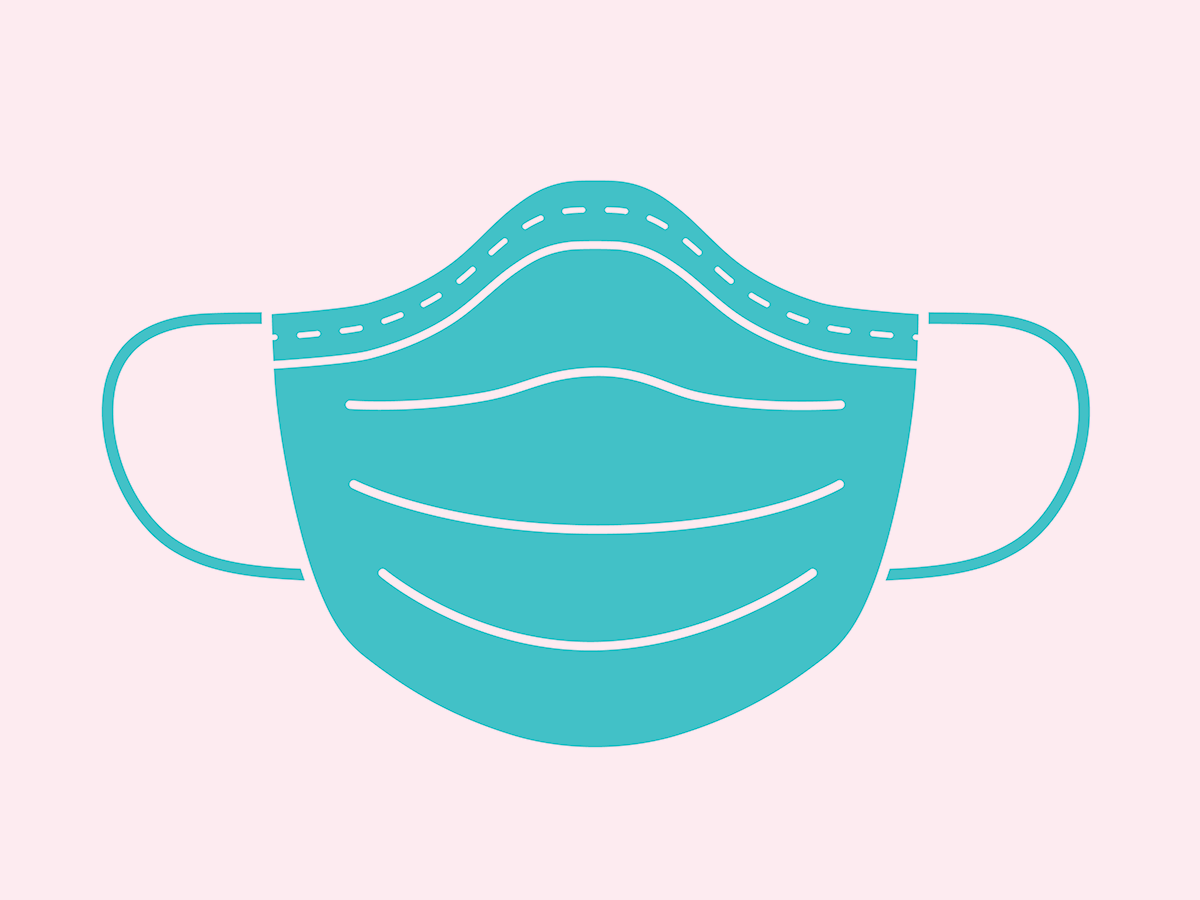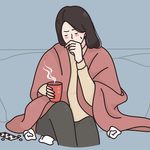Coronavirus in Wuhan: A Nurse’s Report on Covid-19 and Quarantine

"At first I didn't know anyone personally who had died," she says. "Now I don't know anyone who doesn't know someone who died."
[*Editor’s note: Names have been changed to protect their identities.]
“Chest pain, that was my only symptom, but they sent me home and told me to stay there,” says Ruby*, a 26-year-old nurse at a hospital in Wuhan, China. Hospital doctors believed she had Covid-19, the disease caused by the novel coronavirus that’s now sweeping the globe; Ruby recovered from it in January 2020. At least, she thinks she did. Chest pain isn’t a typical symptom of the virus and she never saw a doctor to confirm the diagnosis. But she worked in a hospital that was at the heart of the outbreak and treated some of the first patients. Ruby went from treating others to becoming ill, going under quarantine, and learning that her boyfriend had died from the virus.
Concerns grew as patients poured into the hospital
In December 2019, work was as normal as it can be for a hospital nurse, says Ruby. But then patients began pouring in and the medical staff began to grow suspicious. Ruby says they didn’t know there was a new virus or that there was any need to be worried or to protect themselves. “We heard rumors, but nothing was confirmed,” she says. “They never told us to wear protective masks or that the patients we were treating had a life-threatening illness. We were scared but they told us not to worry about it.”
When she says “we,” she means herself and her boyfriend, Sam*, a doctor at the same hospital. And when she says “was,” it’s because Sam died at the beginning of March. He was one of the 3,000+ reported deaths from Covid-19 in China, a victim of the same illness he worked tirelessly to treat.
Sam cared more about his patients than he did himself, says Ruby, so he didn’t complain about working extra-long hours without adequate protective gear. To make sure the healthcare workers weren’t leaking information, they were told not to discuss the illness outside of the hospital; when transferring patients, they could only verbally share critical information—no pictures or texts or any other form of written record, she says.
But the hospital staff still talked amongst themselves, and their concerns grew along with the number of cases flooding through their doors. At the beginning of January, they were finally told about the new coronavirus and instructed to start wearing masks—but information was still scarce and masks were hard to come by, she says.
“I did not feel like they were telling the truth. For instance, they told us to write ‘pneumonia’ as a cause of death instead of the virus when a person hadn’t been tested, even though I am sure how they died was the virus,” she says. “But I did not ask questions. Everyone knew not to ask questions out loud.”
Getting the unknown virus
Just a couple of weeks later, Ruby got sick, reporting severe chest pain and a feeling of heaviness—symptoms that any other time might have gotten her admitted as a patient. Instead, she was sent home to recover on her own. Recovery was relatively fast and the only other symptom she experienced was a headache that might have been related to PMS, she says. Ruby texted a doctor friend at the hospital about her symptoms—she didn’t text Sam because she didn’t want him to worry. The doctor replied that it seemed the virus wasn’t just attacking the respiratory system but also the heart, liver, and kidneys. (No other health authorities are reporting this, though people who have heart disease, diabetes, or other chronic conditions appear to be at greater risk from the virus.)
Whether her chest pain was from pneumonia or a cardiac issue, Ruby doesn’t know, and that may have been for the best, she says: Because her status was vague, she was able to avoid being quarantined in school gyms or hotels with other people suspected of being ill with Covid-19. (A quarantine hotel in Quanzhou, China collapsed in early March, killing at least 20 people.)
“We were told that if we knew anyone sick to report them immediately,” she says. “Thankfully no one knew I was sick.”
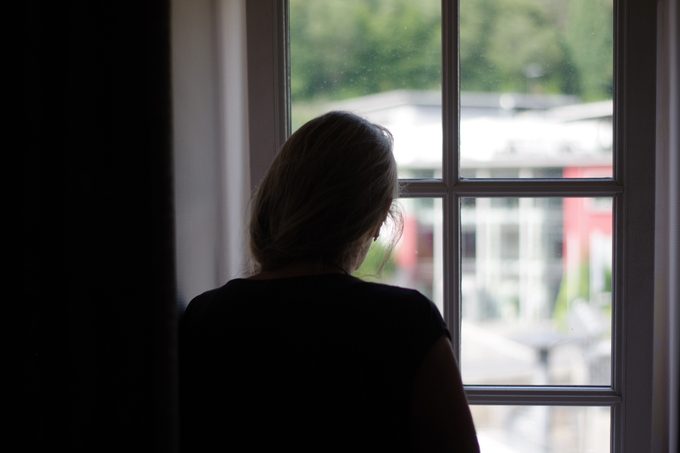 Life under quarantine
Life under quarantine
Then, on January 23, 2020, the Chinese government announced a general quarantine, and Ruby, like 46 million other residents of China, had to remain at home. She hasn’t been back to the hospital since. Living under quarantine has been “crazy and overwhelming but at the same time very, very boring,” she says. Accustomed to being an extremely busy nurse, Ruby now has nothing but time on her hands.
At the beginning of the quarantine, people were allowed to go out for an hour or two once a week to buy food or other necessities, explains Ruby. However, after a couple of weeks, people were limited to picking up bags of food left at a designated spot and required to return home directly to prevent any contact between people. And then that stopped too, she says. Now, she says, her neighbors have banded together to form a co-op of sorts that allows them to share and trade food they’ve managed to gather (although they are still careful not to come too close together). There is no telling what food will be available and when, and people are getting very anxious she says.
“For the first week I ate food I had in my house and I would get very creative in cooking. My family and I would send lots of pictures to each other of new recipes we created,” she says. “But then I ran out. I had to eat dog food for a couple of days until we got instructions on how to get more food. Since then I haven’t gotten everything I needed, but I’ve never been starving.”
For entertainment, Ruby says she makes up games for herself, dances for exercise, reads, and keeps a journal where she writes everything she observes. That journal has become her solace. In earlier entries, she describes the fear and panic of her loved ones along with the ways they managed to get what they needed. As time has gone on, though, her entries have become focused mainly on detailed recordings of the weather as she sees it from her window and rumours of the dead and dying.
“Fear is the worst kind of loneliness”
“At first I didn’t know anyone personally who had died,” she says. “Now I don’t know anyone who doesn’t know someone who died.” She has lists of friends, coworkers, and acquaintances she believes are dead. But it’s hard to grieve when she doesn’t know for sure, she says.
Up until recently she still had an internet connection, but going online got old quickly, Ruby says. The Chinese government tightly controls the internet and she can’t get much information on the things she wants to look up, like the virus. Instead, Ruby and her friends and family rely mostly on WeChat, a popular app in China for texting and sending pictures and videos.
However, the government also monitors WeChat, and discussion of the virus is discouraged. Ruby’s chat group has come up with a code to talk about their feelings, she says.
“It is very lonely, I don’t see my mother, and I heard my younger brother was sick,” she says. “But they say it is not patriotic to talk about these things. People who talk too much are ‘disappeared.'” She points to the recent case of two citizen journalists, Chen Quishi and Fang Bin. They haven’t been seen in public since publishing a series of videos showing body bags, patients, and long lines at hospitals, and expressing dissatisfaction with the way the Chinese government was handling Covid-19.
Chen’s last video message posted on January 30 is haunting: “I am scared,” he says into the camera. “In front of me is the virus. Behind me is China’s legal and administrative power.” Then he tears up, pointing his finger at the camera, and says, “I’m not even scared of death. You think I’m scared of you, Communist Party?” No one has heard from him since; his parents were told he was quarantined.
She never had a chance to say good-bye to her boyfriend
Ruby sees the journalists’ disappearance as a direct warning to everyone else, including her. If authorities figure out she did this interview, she could be arrested. Why did she take this risk? Because even though Ruby and Sam texted and talked on the phone frequently, she never got a chance to see him again or to say good-bye. She instead received the news of his sudden passing in early March from a friend.
“They are trying to pretend it never happened,” she says. “They covered up the virus for too long and many Chinese died because of it, including Sam.” There are rumors that the dead were cremated almost immediately, and Ruby worries that she cannot hold a proper funeral for him. She has found out that his ashes have been stored and his family will be able to retrieve them at some point in the future.
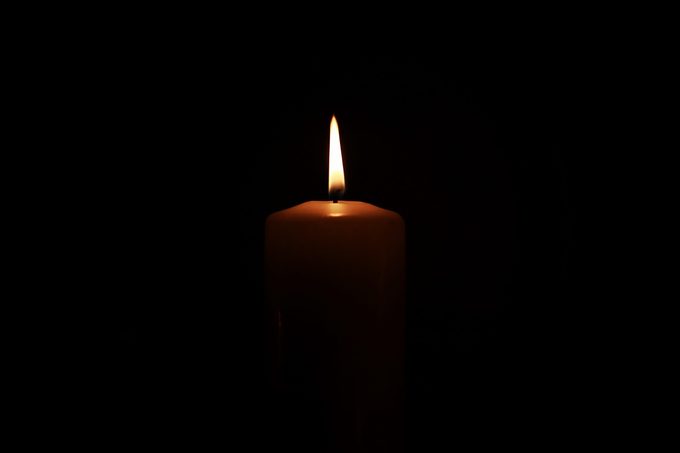 “If we forget them, no one will remember them”
“If we forget them, no one will remember them”
As of March 10, the quarantine is still in place and nearing two months in length, but the news filtering out of China is mainly positive. The worst of the sickness seems to be in the past with reported cases levelling off. As the attention moves on to other aspects of the outbreak in other parts of the world, Ruby wants to make sure those like Sam, who sacrificed everything to help identify the virus in its early stages and help victims, won’t be forgotten.
“They keep saying now is the time to heal but we can’t heal until we can grieve and we can’t grieve until we have the truth,” Ruby says.
